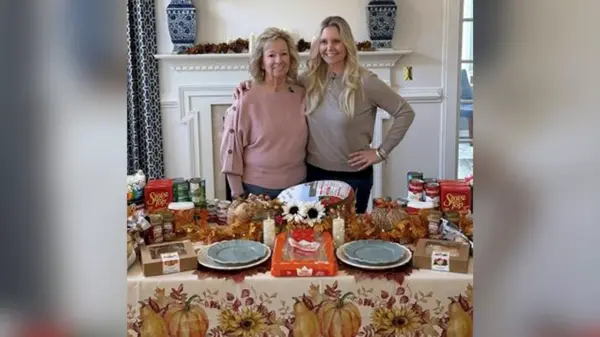UPDATE: A growing family dispute is escalating as a mother pressures her daughter to share painful memories of her late sister, Paloma, with her children. The conflict surfaced after the birth of the daughter’s third child last fall, with the mother insisting on honoring Paloma’s memory, despite the daughter’s reluctance.
The daughter, who remains unnamed, expressed her distress over her mother’s insistence that she discuss Paloma, who died from complications related to anorexia at just over 20 years old. The daughter acknowledges that while her children, aged 6 and 4, know about their aunt, their mother has avoided sharing detailed memories, citing a difficult relationship marked by pain and trauma.
“My memories of Paloma are not positive,” the daughter revealed, highlighting that her sister’s struggles with mental illness overshadowed their relationship. “I felt relief when she died. I know that sounds harsh, but the pain she caused was immense.” These sentiments raise questions about how families navigate grief and memory, especially in the face of mental health challenges.
With the daughter’s parents now living closer to her family, her mother’s push to discuss Paloma has intensified. The daughter fears this could harm her children, who currently know little about their aunt. The emotional toll on the family is palpable, as the mother feels her daughter’s silence equates to erasure.
In response to her mother’s concerns, the daughter is contemplating a conversation to explain her perspective. “I don’t have positive memories to share, and I don’t want to force that on my kids,” she stated, indicating a desire to protect her children from a legacy of pain.
Experts suggest that open communication is crucial. “You aren’t obligated to honor someone who caused you distress,” an advisor commented. “It’s important to set boundaries about how and when to discuss family history, especially with children.”
As this family drama unfolds, it highlights broader societal issues regarding mental health, grief, and the complexities of familial love. The daughter’s reluctance to share memories may stem from a protective instinct, both for herself and her children.
What happens next? The daughter is encouraged to consider family therapy to facilitate healthier discussions with her mother. Such professional intervention could help bridge the gap between their differing memories of Paloma and establish a respectful dialogue.
This urgent family issue resonates with many, as it underscores the delicate balance of honoring family history while managing personal trauma. As the family navigates these emotionally charged waters, the outcome remains uncertain, but the conversation surrounding family dynamics and mental health is more relevant than ever.
As families continue to grapple with the legacies of loved ones, this story serves as a reminder of the complexities of memory, love, and healing. Stay tuned for updates on this developing situation.







































































